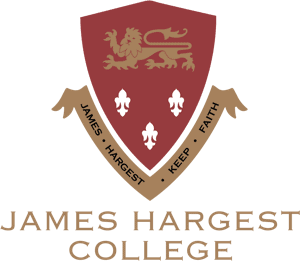What is STAR?
A Secondary Tertiary Alignment Resource (STAR) course introduces secondary school students to training for a specific career. STAR courses are short and are available through polytechnics and private training organisations. Students participate in short-term programmes or “taster courses” for a few days at a time, or one day per week for several weeks, and longer-term programmes leading into Gateway. Where possible courses have been aligned with Vocational Pathways, a new way to structure and achieve NCEA Level 2.
Once courses are available for enrolment they will be advertised on the Daily Notices and on the James Hargest College Careers Facebook page.
Please see Pixie or Katrina in Careers for more information if you are interested in any of the following courses:
| Animation | Engineering |
| Audio | Hairdressing |
| Automotive | Hospitality |
| Beauty Therapy | Intro to Nursing |
| Digital/Game Design | Music |
| Electrical |
Gateway is a programme that enables senior secondary school students to participate in structured workplace learning. Which means that you could spend one day a week in a workplace that offers the job of your choice throughout most of the year.
You would work alongside the current employees and also do unit standards related to your work while you are there.
This is not just a work experience programme, nor is it a programme for under achievers. It is a programme designed to make learning more relevant to you and to make your move from school to the job of your choice more smooth.
In addition to this, you would attend Gateway option classes during which you would catch up on work missed from other subjects and work on your Gateway unit standards. You would be expected to earn at least 20 credits while on this course..
Benefits to you:
- Achieve unit standards and qualifications that could take time off the length of an apprenticeship or put you in a strong position when applying for a job.
- You could leave school having already met your first employer.
- Make school seem more relevant to you.
How to apply:
Gateway works best for students who have a good idea of what they would like to do when they leave school but first want to explore this option in depth.
You will be interviewed in order to assess your ability to:
- Catch up on work missed while at work.
- Present yourself neatly.
- Be relied upon to complete tasks set for you.
- Be punctual.
To find out more or to apply, call into the Careers office beside the library.
Trades Academy – now called Murihiku Tertiary Programme
Murihiku Tertiary Programme in partnership with Southern Institute of Technology provides practical trades and career options to Southland secondary school students.
Students can try practical and hands-on training programmes that contribute towards their NCEA Level 2 and Level 3. Our programmes help you get ready for higher level study, apprenticeships or a job.
This is an offering of various courses that can be studied by attending the Southern Institute of Technology for one day a week throughout the year.
Indicative courses for 2024 are:
Level 2:
Agriculture
Auto Mechanical
Beauty Therapy
Building/Joinery
Electrotechnology
Equine
Game, Art & Design
Hairdressing
Health & Support Services
Hospitality & Cafe Bar
Marere O Tonga
Music & Audio Technology
Level 3:
Animal Care
Digital Design & Animation
Individual & Group Fitness
Introduction to Nursing
Enrolment on one of these courses would be additional to other subjects studied, so students would need to be prepared to catch up on work missed during this time out of school.
How it Works:
If you are going to be a year 12 or year 13 student the S.I.T. Trades Academy courses at S.I.T. will help you get ready for higher level of study or an apprenticeship or a job.
Courses are held in Invercargill, Gore, and Balclutha (agriculture).
To apply students need to talk to their career advisor at school and work out a plan for attending the Murihiku Tertiary Programme.
The student will achieve credits towards NCEA
Do real practical work based learning in a tertiary environment with students from other schools.
Study one day a week at S.I.T. and go to school as normal for the rest of the week.
Being out of school one day a week for 3 terms means that a considerable amount of school work is missed out on and it is the student’s responsibility to ensure that they are able to play catch up on the work that they miss out on. Attendance and behaviour is of utmost importance as this could impact on them attending and as a school, we can withdraw the student if we see fit.



